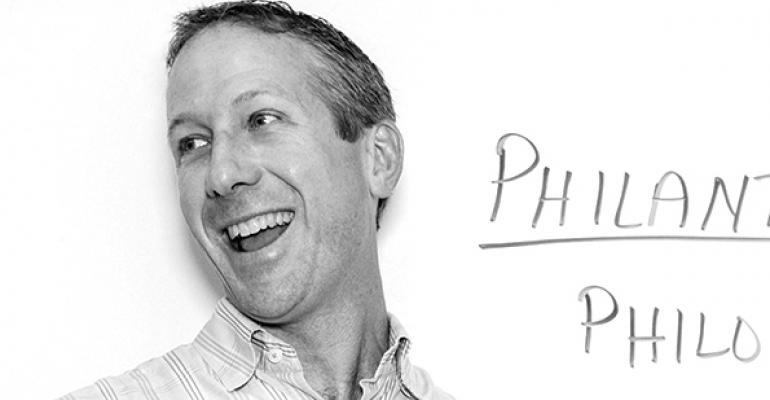For Ryan Ponsford, philanthropy helps the giver as much as the recipient.
That’s the belief behind Main Street Philanthropy, the organization he started to help underprivileged kids find both purpose and influence over their lives by engaging in acts of charitable giving.
Usually based in a school, Main Street Philanthropy students work in teams and are given a sum of money to donate. They start by identifying their own values, match those values to a list of charitable organizations, and collectively decide which ones they will support. They analyze the charities’ 990 forms to understand the finances, interview board members and make site visits (if possible). According to Ponsford, the kids learn financial literacy, research techniques and communication skills. Ultimately they learn they are empowered to affect the world around them for the better—powerful lessons for children who otherwise might think their lives make little difference.
“Philanthropy is the hook, but it’s the life skills they learn that makes the difference,” Ponsford says.
Ponsford first developed the ideas behind Main Street Philanthropy while working with another demographic at times equally searching for meaning: The children of the affluent.
In his advisory work he found members of the second or third generation of wealthy families are often unable to make considered decisions regarding money; they lack financial literacy, and conflicts between family members can be intense. He met Scott Farnsworth, president of SunBridge and Legacy Planning Associates, who developed an approach to get family members to share stories, identify values and better deal with the internal problems that are often amplified when wealth is involved. Getting the families involved in what Ponsford calls “intelligent and considered giving” was one way to help them put those insights to work.
He discussed the work with a friend who ran a San Diego school for at-risk children, and realized the same program could help those kids too. “Here I am designing things for kids with hundreds of millions of dollars, and these kids had nothing.”
Since then, he and Farnsworth have expanded Main Street Philanthropy across the country. There are 12 volunteer “ambassadors” who, inspired by the work, get trained in the program and bring it to schools in their home communities.
So far, almost 300 kids have participated in the program, and last year distributed $54,000 to over 100 charities. That will grow exponentially this year, with participating students slated to rise to 1,250 across seven states, Ponsford says.





